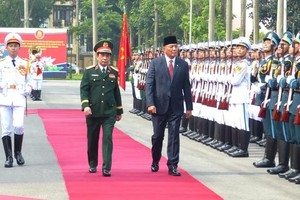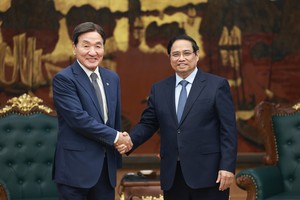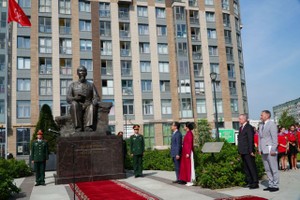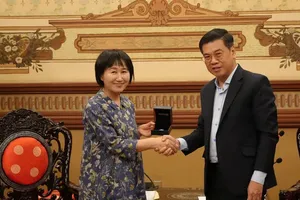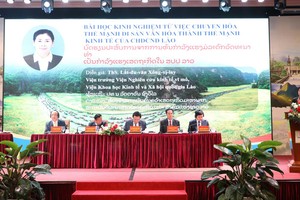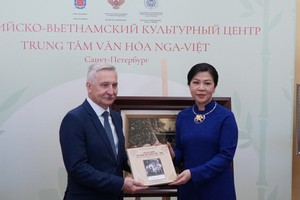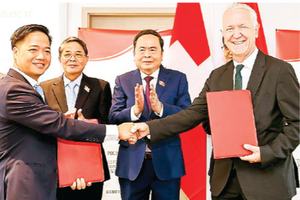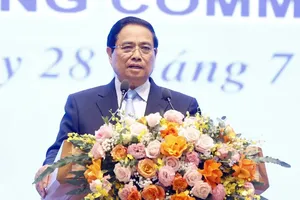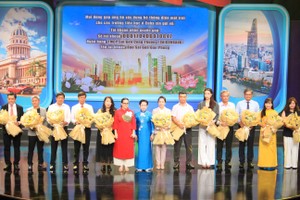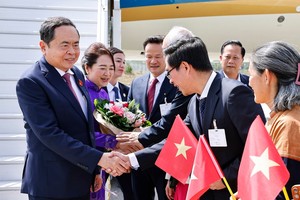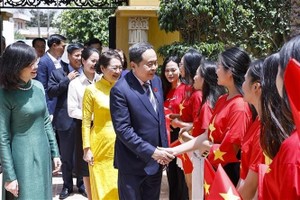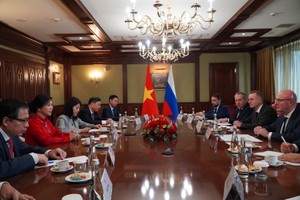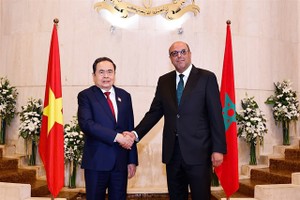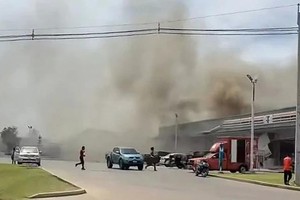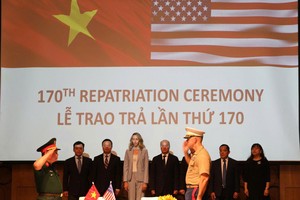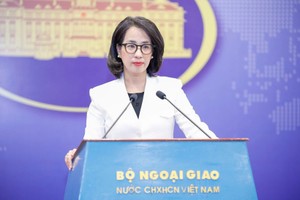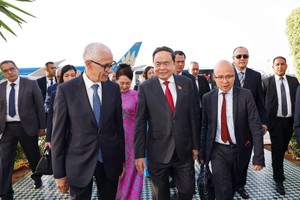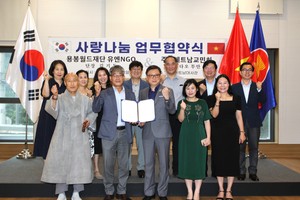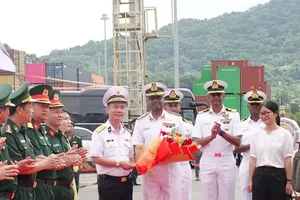
KUNASHIR, Kuril Islands (AFP) – Russian President Dmitry Medvedev arrived in the Kuril Islands on Monday on the first visit by a Russian leader to territory at the heart of a decades-long dispute with Japan.
The trip, which comes ahead of Medvedev's visit to Japan for the Asia-Pacific Economic Cooperation (APEC) summit later this month, immediately triggered the ire of Japan.
"As Japan has kept its position that the four Northern Islands belong to the Japanese territory, the president's visit there is very regrettable," Japanese Prime Minster Naoto Kan told parliament shortly after Medvedev touched down.
Foreign Minister Seiji Maehara echoed the premier, saying the visit "hurts Japanese public sentiment and is extremely regrettable."
The Kremlin chief flew in to the island of Kunashir, in what analysts say was a deliberate signal to Japan that it is not willing to give up the four southernmost islands, which are home to about 19,000 people.
He snapped some pictures during a windswept and rainy visit to a pier overlooking the Pacific Ocean, and also inspected sites such as a geothermal energy station and a fish processing plant.
The Kuril Islands, a volcanic archipelago which lies north of Japan's Hokkaido island, have been controlled by Moscow since they were seized by Soviet troops at the end of World War II.
Tokyo claims the southernmost four as Japanese territory.
In September, Medvedev called the islands "a very important region of our country" and announced plans to visit, prompting a warning from Japan of worsening ties.
Russian Foreign Minister Sergei Lavrov had said on Saturday that the visit to the islands -- which are home to about 19,000 people -- should not affect relations.
"The president plans his domestic movements across our country independently," he said, adding that he did not see "any connection" to relations between Moscow and Tokyo.
The row has prevented Russia and Japan from signing a peace treaty to formally end World War II hostilities, impeding the development of ties to their full potential.
The dispute surrounds the four islands -- known in Russian as Iturup, Shikotan, Habomai and Kunashir and in Japanese as Etorofu, Shikotan, Habomai and Kunashiri. They are rich in metals such gold and silver and boast an abundance of marine life.
Japan has baulked at suggestions that Russia could hand over two of the four islands or that the nations could develop them jointly, insisting on the return of all four islands.
In 1956, the Soviet Union signed a declaration offering to give back the two smallest islands but talks never progressed.
President Vladimir Putin from 2004 several times raised the theoretical possibility that Russia could hand over two of the four island to Japan.
After Medvedev was elected in 2008, Japan hailed him for showing a "strong desire to solve this problem," but no breakthroughs have emerged.
In October 2009, Maehara, then Japan's land minister, reiterated that the islands had been seized in an "illegal occupation", provoking an angry response from Moscow.
Earlier that year, Japan's parliament passed a law calling the Kurils "an integral part" of the country and saying it would "make the utmost efforts to realise the early return of the islands".
The Russian foreign ministry responded by calling the law "unacceptable."
Top Russian officials including Lavrov have visited the islands.
In 2005 the European Parliament adopted a resolution urging Russia to return the islands, which it called the Northern territories, to Japan.
